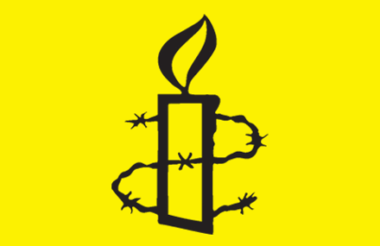Amnesty International has announced that five of its seven senior leadership team members will be made redundant after an external review found the charity had a “toxic working culture”.
The human rights charity’s secretary general Kumi Naidoo ordered an independent review after two employees killed themselves last year.
Published in February, the review accused Amnesty of having a “toxic working culture”, with over a third of its staff reporting that working for the charity has caused them health problems.
And this month, Naidoo told staff that five of the charity’s seven members of its senior leadership team would leave by October this year.
The five departing senior directors are: Colm Ó Cuanacháin, office of the secretary general; Minar Pimple, global operations; Richard Eastmond, people and services; Tawanda Mutasah, law and policy; and Anna Neistat, research.
Julie Verhaar will stay on as deputy secretary general, and Thomas Schultz-Jagow as senior director for public engagement and growth.
Naidoo said there will then be a “transitional” leadership team in place for a month before a new “coalition” leadership team becomes operational in November.
The coalition leadership team will have just four senior directors comprising Verhaar, Schultz-Jagow, a chief financial officer and a senior director for movement empowerment and support.
Redundancy package
Amnesty said the five staff being made redundant will be entitled to its senior leadership team redundancy policy, “which is less favourable than that of other staff”.
“The SLT aren’t automatically entitled to keep the full three weeks salary per year of service – it is payable by instalments over six months and would be reduced or cut off by any income they obtain if they get another job within six months.
“All other staff would get the full package without any mitigations.”
New strategy
Also this month, the charity began the process of developing a new global strategy that will inform the organisation’s direction and focus from 2021 onwards.
It has opened a survey to the general public which asks how the organisation can: shift narratives and attitudes, strengthen its movement and become a better partner, influence or disrupt power, and become more diverse and inclusive.
The survey also asked what Amnesty’s added value and unique role should be.
|
Related articles











